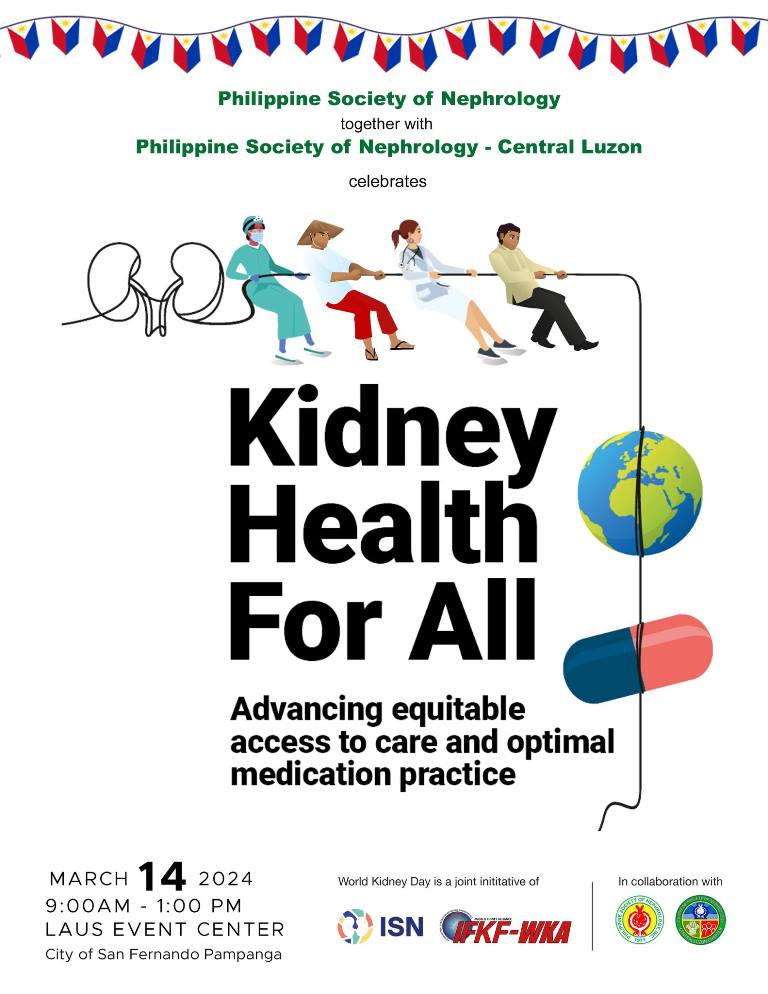In a global effort to combat the escalating rates of kidney disease, the Philippines is gearing up to observe World Kidney Day on March 14, 2024. This annual celebration is spearheaded by the Philippine Society of Nephrology (PSN), with a mission to prevent kidney disease and promote overall kidney health.
Kidney disease has emerged as one of the top 5 causes of death among Filipinos, prompting a call to action for increased awareness and collaborative efforts to address this health crisis.
Objectives of World Kidney Day 2024:
The PSN aims to engage not only medical professionals but also key stakeholders who can play a pivotal role in curbing the rising incidence of kidney diseases. To achieve these objectives, the PSN is reaching out to various organizations, including local executives, to seek support for the following initiatives:
STOP CKD Program Engagement:
Increase collaboration with primary care physicians under your department through the STOP CKD Program launched in October 2022. This program focuses on educating primary care physicians and general practitioners about screening individuals at an elevated risk of Chronic Kidney Disease (CKD) and initiating early-stage CKD management.
Community Awareness Forums:
Expand engagement with different barangays to conduct STOP CKD lay forums. These forums will educate communities on preventive measures to avoid the development or worsening of kidney diseases.
Partnerships with Local Governments:
Establish partnerships with local government units and health centers to ensure the availability of protocols for proper kidney disease screening, early management, and the utilization of drugs proven effective in preventing kidney disease. This includes ACE inhibitors, ARBs, and SGLT2 inhibitors.
Seeking Support from National Policy Makers
Recognizing that diabetes and hypertension are the top two common causes of CKD, the PSN seeks support in ensuring the availability and access of patients to anti-diabetic and anti-hypertensive medications.
The PSN cordially invites relevant oversight agencies to discuss these advocacies and explore ways to collaborate as partners in the fight against CKD and collectively contribute to kidney health.







